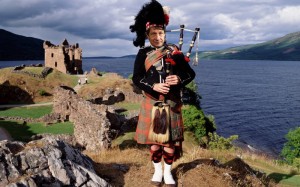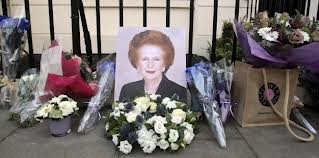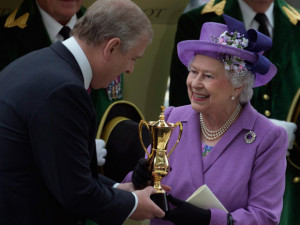Re Ian Bremmer 'Could third-party candidates upend the 2024 US election?' 3 April The current political movement in the USA…
U.K. in 2013 – 2015
Written by Diana Thebaud Nicholson // October 21, 2015 // Britain/U.K. // 1 Comment
U.K., China Cement Growing Friendship With Big Nuclear Deal
(Foreign Policy) China and its new “best friend” signed billions of dollars worth of deals during Xi’s state visit, including funding for a controversial nuclear power plant, further consolidating what many see as London’s troubling lurch toward Beijing.
On Wednesday, Chinese President Xi Jinping and British Prime Minister David Cameron shook hands on a $9 billion Chinese investment to help build the first nuclear power plant in the U.K. in a generation. It was the shiny centerpiece of a $46 billion investment package the two countries agreed to during Xi’s four-day, red-carpet visit to his new “best partner in the West.”
Britain hopes to ingratiate itself with the world’s second-largest economy, while China hopes the deals, especially the massive investment in the controversial and hugely expensive Hinkley Point nuclear power station, will serve as a bridgehead for more multibillion-dollar nuclear deals. The two countries are talking about Chinese investment in two additional nuclear plants, including one that will use Chinese-built reactors.
The energy-sector investments are part of a broader British shift toward China, led by George Osborne, the chancellor of the exchequer, Britain’s top Treasury official. He touted London as Beijing’s potential “best partner” on a glad-handing trip through China last month. And Xi’s visit to London comes after months of explicit British government support for a growing Chinese economic role in the world, from joining the Chinese-led Asian Infrastructure Investment Bank, to supporting Beijing’s bid to transform the renminbi into a global reserve currency.
Polly Toynbee: This nuclear power deal with China is one of the maddest ever struck
Today is the big sign-up, as Mont Blanc pens are put to one of the maddest deals ever struck by any government, let alone by David Cameron, who has the word “security” on a repeat key for every speech. A Chinese state-controlled company, with a minority French state partner, will build (and control) massive nuclear power plants at Hinkley Point, Bradwell in Essex and Sizewell. British intelligence agency sources are said to be so concerned that they have let it be known in public that they can never know what hidden capabilities are built into the plants’ software.
On the one hand, the government needs four new Trident subs to protect us from unknown – Chinese? – future nuclear foes in a dangerous world. But on the other hand Cameron and Osborne are nonchalant about the blatant risk of the Chinese planting undetectable devices that could, say, blow up the plants, with which to blackmail us if they chose. … These nuclear power plans are bizarre in every way. Hinkley Point will be the most expensive plant in the world, at £24bn. To pay for it, monumental subsidies lasting until 2060 will dwarf any PFI ever devised. Osborne begs the Chinese to pay for this and for HS2 as well on a never–never bill for our grandchildren, when we could borrow the money at negligible interest and be in hock to no one.
Britain ‘sucking up’ to China is a national humiliation, says PM’s former adviser
Hilton, who left Downing Street in 2012 to teach at Stanford University in California and is CEO of tech startup Crowdpac, told BBC Newsnight that Britain’s lavish treatment of the Chinese leader was “the worst national humiliation since we went cap in hand to the IMF in the 1970s”.
Paul Krugman: The case for cuts was a lie. Why does Britain still believe it?
The austerity delusion
Is there some good reason why deficit obsession should still rule in Britain, even as it fades away everywhere else? No. This country is not different. The economics of austerity are the same – and the intellectual case as bankrupt – in Britain as everywhere else. April 29, 2015
FT reports: Foreigners sell £3.4bn of London property
Vendors pocket £870m in profits and ‘flip’ properties as concern rises over prices
21 July
George Monbiot: Danger Mice
Beware of politicians making themselves look big by inflating security threats
On Monday, David Cameron maintained that confronting Islamic extremism is “the struggle of our generation”. We must pursue this struggle in the spirit with which we “faced down Hitler”. Yes, Islamic extremism is real. Yes, it creates genuine problems and presents genuine threats. But to claim it as the struggle of our generation suggests a total collapse of perspective.
Men like Cameron, Tony Abbott and Stephen Harper won’t engage in generational struggles with real existential threats – climate breakdown first among them – for fear of alienating their sponsors. They have learnt all the wrong lessons from Churchill’s legacy, seeking to invest themselves with belligerent glory while forgetting his ability, at crucial moments, to place the interests of the nation above the interests of his class.
So, as Hitler is reborn with a thousand faces, a new “struggle of our generation” emerges every six months, and all around us existential crises are ignored
29 June
Why I’m leaving London
The short version is, we want to live in a city whose priorities are around making a livable place to work, raise our family, and run our respective small businesses. But London is a city whose two priorities are turning itself into a playground for the most corrupt global elites who are turning neighbourhoods into soulless collections of empty, high-rise safe-deposit boxes in the sky; and continuing to encourage the feckless, reckless criminality of the finance industry (these two facts are not unrelated).
Rowan Moore — London: the city that ate itself
London is a city ruled by money. The things that make it special – the markets, pubs, high streets and communities – are becoming unrecognisable. The city is suffering a form of entropy whereby anything distinctive is converted into property value. Can the capital save itself?
(The Guardian) … local authorities have had their budgets assaulted, which puts pressure on them to come up with money in any way they can, which helps explain why boroughs such as Lambeth want to make as much as they can out of the property they own in places such as Central Hill. It is also the reason why libraries and day-care centres have closed or are threatened.
Which brings us to an outrageous inequality in the government’s attitude to austerity. The deregulation of the restrictions on conversion of sites from other uses to residential is in effect a colossal gift to those lucky enough to own them; a jackpot, a shower of golden coins from a vast, state-owned slot machine. At the same time, local authorities are bullied and squeezed into surrendering their assets, at whatever cost to their residents and tenants, just to keep financially afloat.
Beyond this inconsistent generosity is the failure by national government and London’s mayor to face up to the scale of the issues involved. London’s population is expected to reach 10 million by 2031, which would be 150% of its mid-1980s level, within the constraints on expanding sideways set by the green belt. This is a vast challenge that is about more than counting bedrooms. “Of course there’s a housing crisis,” says Harding, “but there’s also an employment space crisis. It includes highly professional artists and creative businesses, the self-employed and sole traders that are the future of employment.”
“Just when you thought you had one giant unsolvable problem, in housing”, says Brearley, “you find you also have number two.”
Serious consideration of both giant problems should include such options, ideologically difficult for the current administration, as publicly led building on publicly owned land, and (with good planning and a high degree of caution) building on those parts of the green belt that are not actually significant natural or agricultural assets. Instead, the only approaches that this government knows are to deregulate and incentivise the private sector, in the belief that, ultimately, it will meet the city’s housing needs unaided. Which it has not, for many decades, done, if ever. The result is that the weak spots, in market terms, are cannibalised. What goes is the soft but essential tissue that makes the city worth inhabiting and that, ultimately, makes it desirable to those outside investors.
18 June
BRILLIANT!
The Battle of Waterloo, as it happened on June 18, 1815
(The Telegraph) On this 200th anniversary, experience the historic clash of Wellington and Napoleon in real time – just as it unfolded two centuries ago
16 June
Two-Hundred Years On, London Celebrates a Near-Run Thing
A bevy of events commemorate the bicentenary of Waterloo.
(WSJ) In a survey conducted by the National Army Museum in April, 73% admitted to having “little or no knowledge” about the battle, and 14% believed the French were victorious.
This painful state of affairs is being redressed during the bicentennial of the battle by exhibitions in museums, galleries, stately homes and monuments that reflect not just the glory of victory but demonstrate how it became a catalyst for an outpouring of art, mostly celebratory, some more sobering, about a day that saw between 42,000 and 53,000 killed.
23 May
A near-run thing
Appallingly bloody, yet decisive, the battle of Waterloo in June 1815 deserves the attention it is getting 200 years later
In all probability, Napoleon could not ultimately have won the war, because of the size and determination of the forces ranged against him across Europe. But what gives the story its enduring power is the fact that the outcome of this battle was far from certain. As Wellington said later, it was “the nearest-run thing you ever saw in your life”
(The Economist) WITH the bicentenary of the battle of Waterloo fast approaching, the publishing industry has already fired volley after volley of weighty ordnance at what is indeed one of the defining events of European history. About that, there can be no argument. Waterloo not only brought to an end the extraordinary career of Napoleon Bonaparte, whose ambitions had led directly to the deaths of up to 6m people. It also redrew the map of Europe and was the climax of what has become known as the second Hundred Years War, a bitter commercial and colonial rivalry between Britain and France that had begun during the reign of Louis XIV. Through its dogged resistance to France’s hegemonic ambitions in the preceding 20 years, Britain helped create the conditions for the security system known as the Concert of Europe, established in 1815. The peace dividend Britain enjoyed for the next 40 years allowed it to emerge as the dominant global power of the 19th century.
If the consequences of the battle were both profound and mostly benign, certainly for Britain, the scale of the slaughter and suffering that took place in fields 10 miles (16km) south of Brussels on that long June day in 1815 remains shocking. The Duke of Wellington never uttered the epigram attributed to him: “Next to a battle lost, the greatest misery is a battle gained.” What he did say in the small hours after the battle was: “Thank God, I don’t know what it is like to lose a battle; but certainly nothing can be more painful than to gain one with the loss of so many of one’s friends.” Nearly all his staff had been killed or wounded. Around 200,000 men had fought each other, compressed into an area of five square miles (13 square kilometres). …Although frequently told, the story of the battle, or rather three battles—the engagement between Wellington’s Anglo-Dutch forces and the French at Quatre Bras on June 16th, the much bigger battle of Ligny on the same day, which saw the defeat of Prussia’s army, and finally Waterloo itself on the 18th—remains tense and gripping.
14 May
Brexit – what would happen if Britain left the EU?
Growth, trade, immigration, jobs, diplomacy: what would the impact be if a 2017 referendum pushed UK towards the exit?
After winning a second term, prime minister David Cameron pledged to re-shape Britain’s relationship with Europe. The Guardian looks at what a British exit from the EU would change in terms of GDP, jobs, trade, and immigration. The picture is complicated, but the cons definitely outweigh the pros.
13 May
According to Tuesday’s Guardian “George Osborne arrived in Brussels for today’s Ecofin meeting, and declared that he’s determined to reform the EU for the benefit of Britain, and the rest of Europe too”. He used the opportunity to warn that Britain would be “resolute and firm” in seeking to repatriate powers before a referendum on whether the UK should quit the union. “We come here with a very clear mandate to improve Britain’s relationship with the rest of the EU and to reform the EU,” said Osborne. “I don’t think anyone is now in any doubt that we will hold that referendum on British membership of the European Union having conducted these negotiations. We go into the negotiations aiming to be constructive and engaged but also resolute and firm and no one should underestimate our determination to succeed.” Doesn’t sound too promising.
8 May
Britain stays blue
(The Economist) Our editors discuss why the Conservatives won, why a federal Britain might not be too far off and what the chances are of Britain leaving the European Union (video) More coverage from the Economist
6 May
We confess to being more than a bit confused, so would welcome guidance. Our usual sources, the Guardian and the BBC have assumed that we have more information than we have. Stratfor’s analysis How British Elections Represent the State of Europe is thoughtful, but not overly helpful. Quartz says the outcome could be the messiest in a generation.
5 May
UK general election 2015 in numbers
How many seats do the Conservatives and Labour need to avoid a coalition? Why is everyone talking about the Scottish National Party? Can UKIP expect MPs? All this, and more in DW’s numerical tour of the British ballot.
(Deutsche Welle) With the royal baby Charlotte politely born, and named, ahead of time, voters in the UK can now turn their attention to the ballot box. For William and Kate’s babe, the numbers are simple: she’s their second-born and the fourth in line to the throne.
In UK elections, with first-past-the-post voting, the numbers used to be just as easy: whichever party won the most votes and seats would likely lead the government. But for the second vote in a row, a “hung parliament” – in which no single party has a majority – appears the likely scenario. That makes matters considerably more complex, but DW can talk you through the key digits to better understand Thursday’s results.
650 – The total number of constituencies in England, Scotland, Wales and Northern Ireland; by extension, the number of parliamentary seats in Westminster. With no proportional representation, only these 650 mini-elections matter – a party’s share of the nationwide vote is ultimately meaningless.
2014
Special Report: Scotland stays in UK, but Britain faces change
(Reuters) – The leaders of the Conservatives and the Liberal Democrats – who form the current national government – and the opposition Labour Party promised Scots a fast-track timetable for further devolution, including decisions on welfare, borrowing, and tax-raising powers. They also signed a pledge to maintain indefinitely the higher funding levels that Scotland receives compared with many other regions of the UK.
On Friday, Cameron also promised he would seek to shake up the constitutional arrangements for the rest of Britain. “It is absolutely right that a new and fair settlement for Scotland should be accompanied by a new and fair settlement that applies to all parts of the United Kingdom,” he said.
Those promises open up a Pandora’s box of further problems. Many voters outside Scotland see Scotland’s gains as a bribe and have grumbled that Scots are getting special treatment.
 Welcome relief from the serious pundits
Welcome relief from the serious pundits
P.J. O’Rourke: A Free Scotland Would Be a Hilarious Disaster
An independent Scotland would be a catastrophe as a country. But it would also be very entertaining for reporters like P.J. O’Rourke.
This coming Thursday the Scots will vote on whether to make Scotland an independent nation. And I hope they do because it will be a disaster. (13 September)
Scottish referendum explained for non-Brits – video – not meant to be funny, but a lighter look at what’s at stake and why.
Wales reveal they’ve already left UK
17 September
Niall Ferguson — Scottish referendum: Alone, Scotland will go back to being a failed state
Yes supporters are hoping Scotland will become a Scandinavian paradise. But with its history of bitter internal divisions, it is likely to go the opposite way
 16 September
16 September
George Monbiot: How the media shafted the people of Scotland
Journalists in their gilded circles are woefully out of touch with popular sentiment and shamefully slur any desire for change
15 September
Fisher: Scotland’s referendum comes down to questions of money, oil and arithmetics
Scots who support Scottish independence and Scots who wish to remain part of the United Kingdom are agreed on one thing.
The manufacture of whisky, tourism and the banking sector help the bottom line a lot. But there would not be a referendum on Thursday if billions of pounds worth of oil and natural gas had not started flowing from the North Sea about 40 years ago.
As on so many other issues, there is an incendiary verbal brawl between Scotland’s Yes and No camps over how much oil and gas there is and what it might be worth. * See comment of September 18 below
12 September
Kimon Valaskakis: The triple mistake of a Yes vote in Scotland
Let me begin by saying that I am very fond of Scotland. Once married to a lovely lady from Glasgow and having a half-Scottish son, I have always admired Scotland’s contribution to the world, from Adam Smith to Robbie Burns and on to this present day.
But the claim made by some that Scotland invented civilization is, still, a trifle exaggerated.
We all know that Greece did.
Because of my admiration for Scotland, I am convinced that a Scottish Yes vote for independence in next Thursday’s referendum would be a triple mistake.
First and foremost, it would not be good for Scotland.
Investors pull £17bn from UK as banks ratchet up Scottish independence pressure
Net flows out of Britain hit $27.3bn (£16.8bn) in August, the highest seen since the financial crisis
Andrew Potter: There are few useful parallels between Scottish and Quebec separatism – compare and contrast with Bloomberg piece of 11 September
(Ottawa Citizen) As Scotland barrels toward a referendum on whether to secede from the United Kingdom, an obligatory cottage industry has sprung up in Canada drawing the apparent parallels with the Quebec situation and offering lessons and cautions to all sides. But if – as is looking increasingly likely – the Scots do decide to go their own way on Sept. 18, it will be because their situation in the United Kingdom is profoundly different from that of Quebecers in Canada. To put it bluntly, the Scots probably have more reason to go than do the Quebecois.
11 September
Scottish independence: 97% register to vote in referendum
More than 4.29 million of Scotland’s adults now signed up for independence vote, with 118,640 added in last month
8 September
Scotland Is Now Separate, Even If Scots Vote No – the headline is totally misleading. The article is a good analysis of the Quebec experience and how it might apply to Scotland, especially if the vote is No.
(Bloomberg) In late summer 2011, three months after Alex Salmond secured an unprecedented majority in elections to the Scottish Parliament, officials from his party flew to Montreal to learn how to organize a referendum.
There, the Scottish National Party delegation met with separatists from Parti Quebecois waging their own four-decade battle to split from Canada, fighting on after calling — and losing — two plebiscites in 1980 and 1995. Conscious of that failure, the Scots had one request: no media.
“They didn’t want to be very close or be seen with people of the PQ and other sovereigntists of Quebec,” said Daniel Turp, a former legislator for the party who helped organize the visit. “They want to win and obviously the PQ did not win the two referendums they initiated.”
28 August
A Step Closer to Brexit?
The referendum on Scottish independence, due on September 18, comes at a time of growing opposition in the United Kingdom to remaining in the European Union. This is significant, because Scotland is the strongest base of pro-European sentiment in the UK.
For example, a poll conducted earlier this year determined that if a referendum on continued EU membership had been held in June in the UK as a whole, 47.1% would have voted to leave, with 39.4% voting to remain. But a poll in February 2014 showed that in Scotland, 48.7% would vote for the UK to remain in the EU, with 35.4% voting to leave. Other polls have also shown a consistent and markedly more positive attitude toward the EU in Scotland than in England.
George Monbiot: The British Thermopylae
The lynx is now becoming the totemic animal of a movement that is transforming British environmentalism: rewilding.
Rewilding means the mass restoration of damaged ecosystems. It involves letting trees return to places that have been denuded, allowing parts of the seabed to recover from trawling and dredging, permitting rivers to flow freely again. Above all it means bringing back missing species.
One of the most arresting findings of modern ecology is that ecosystems without large predators behave in radically different ways from those that retain them. Some of them drive dynamic processes – trophic cascades – that resonate through the whole foodchain, creating niches for hundreds of species that might otherwise struggle to survive. The killers turn out to be bringers of life.
Such findings present a radical challenge to British conservation, which has often selected arbitrary assemblages of plants and animals and sought, at great effort and expense, to prevent them from changing. It has tried to preserve the living world as if it were a jar of pickles, letting nothing in and nothing out, keeping nature in a state of arrested development. But ecosystems are not just collections of species; they are also the dynamic and ever-shifting relationships between them. And this dynamism often depends on large predators.
11 August
Clive Crook: Splitsville U.K.: The case for a sovereign Scotland
(iPolitics) Don’t look for enlightenment to the debates about Scottish independence and a British exit from the EU. Up to now, they’ve dwelt on inessentials. Bill Emmott makes this point in a good column in the Financial Times: The discussions are bogged down in arguments about economic prospects. See last week’s televised debate on independence between Alex Salmond (leader of the Scottish independence movement) and Alastair Darling (a Scot who’s a former U.K. chancellor of the exchequer), for example.
It’s impossible to say whether, in the fullness of time, independence would help or hurt Scotland’s economy, or whether Brexit would help or hurt the U.K. It all depends — on policies, not constitutional arrangements.
Of course, Scottish independence and Brexit might trigger policy changes — just as any election might. But they wouldn’t dictate them, much less fix them in place. So Scotland’s economy might do well after independence, or it might do badly. In the same way, the U.K. economy could thrive or fail outside the EU — as a useful new report for Boris Johnson, mayor of London and possible future Tory leader, explains.
5 May
(Financial Times) Property held offshore raises eyebrows
Between 1999 and 2012 nearly 100,000 UK residential and commercial properties were bought through foreign companies, most registered offshore
George Monbiot: Welcome to Britain, the new land of impunity
No matter the criticisms made or damage done, fat cats and politicians seem able to cling on. Often their efforts are rewarded
There has seldom, in the democratic era, been a better time to thrive by appeasing wealth and power, or to fail by sticking to your principles. Politicians who twist and turn on behalf of business are immune to attack. Those who resist are excoriated.
Here’s where a culture of impossible schemes and feeble accountability leads: to cases like that of Mark Wood, a highly vulnerable man who had his benefits cut after being wrongly assessed by the outsourcing company Atos Healthcare as fit for work, and starved to death – while those who run such companies retire with millions. Impunity for the rich; misery for the poor.
21 April
Londongrad Calling — The United Kingdom’s Dangerous Dependence on Russian Money
(Foreign Affairs) In March, a tongue-in-cheek online referendum in the eastern Ukrainian city of Donetsk proposed to resolve the standoff between Kiev and Moscow by joining the United Kingdom, given the Welsh roots of the city’s nineteenth-century founder, the industrialist John Hughes. The referendum, which took the name of the British national anthem, “God Save the Queen,” received a few thousand votes, as well as a good deal of exposure in the foreign media. A rather more plausible scenario, of course, is that this Russian-speaking city will drift into Moscow’s sphere of influence.
Although the Union Jack is unlikely to fly over Donetsk anytime soon, some observers worry about a Russian flag flying over London, at least metaphorically. Wealthy Russian expats seem to wield substantial political influence over the British government, particularly in its approach to the Ukraine crisis. The evidence: on March 3, a government briefing paper, which a foreign policy adviser carelessly brandished to a phalanx of photographers outside No. 10 Downing Street on his way to a meeting, revealed that Prime Minister David Cameron’s government would oppose any sanctions that closed off London’s financial center to Russian money. Russian billionaires currently own two of Britain’s leading newspapers, a couple of its top football clubs, and a large slice of prime London real estate.
16 April
Remote, oil-rich Shetland elbows way into Scotland’s independence vote
(Reuters UK) As the Scottish independence vote nears, Shetland’s council has joined forces with two other island councils, Orkney and the Western Isles, to ask for greater control of local services and new fiscal arrangements to enable them to benefit from the oil, fisheries and renewable energy resources surrounding them.
At stake for the Scottish government could be its share of the 7 billion pounds or so of annual oil production taxes which Edinburgh wants in the event of a “Yes” vote for independence.
For many on Shetland, where the blue and white Nordic-style flag flutters from masts amongst the peat hills and isolated coves, a sense of being a Shetlander comes ahead of any Scottish, British or, given history, even Norwegian identity.
22 March
Russian money in Britain
Honey trapped — London has more to lose than most when it comes to scaring off oligarchs
(The Economist) If Britain did decide to get tough on oligarchs on good terms with Mr Putin, it would face problems. It would be hard to justify picking on businessmen who, however chequered their backgrounds, played no role in stirring up trouble in Crimea. Seizing Chelsea from Mr Abramovich, as some have proposed, would be a banana-republic response—even if it might please Arsenal fans and those who blame house prices on foreign wealth.
There is also the small issue of the rule of law. The Russians’ overpaid counsel would have a field day picking holes in the legality of sanctions or seizures. London is full of lawyers experienced in asset-recovery litigation, and well versed in exploiting the difficulties of linking this pool of money to that crime. The most egregious kleptocratic excess can be devilishly hard to establish to the satisfaction of the courts. This may explain why the sanctions announced this week were against officials with undisputed links to Russian decision-making over Crimea.
There is another, more promising set of targets, however: the people in charge of state-run Russian companies, some of whom are known to have expensive pads and business interests in Western capitals. A plush Hampstead house, for instance, belongs to the son of Vladimir Yakunin, the head of Russia’s railways and a chum of Mr Putin’s. But go after bosses at a firm like Rosneft, and you risk traumatising your own corporate titans. BP has a 20% stake in the giant state oil producer.
2013
JPMorgan may settle U.S., UK ‘Whale’ probes for $600 million: source
(Reuters) – JPMorgan Chase & Co is in talks with a group of regulators, including U.S. prosecutors, to settle probes of the bank’s “London Whale” trading losses last year for about $600 million, according to a person familiar with the talks.
The global settlement talks are expected to address events surrounding the losses JPMorgan incurred when London-based traders in the bank’s chief investment office amassed an oversized stake in an illiquid derivatives market, building positions so big they earned one trader, Bruno Iksil, the nickname “the London Whale.”
JPMorgan Chief Executive Jamie Dimon initially dismissed the London Whale losses as a “tempest in a teapot,” but the remark came back to haunt him. The bank had to quickly unwind the trades, incurring a loss of more than $6 billion, and had to restate a quarterly earnings report.
25 July
Duchess of Cambridge gives birth to baby boy, third in line to the throne
Prince William and Catherine Middleton’s first child weighed 8lbs 6oz, Kensington Palace announces (22 July)
Royal baby name: Prince George Alexander Louis announced to the world
Baby, who will be known as Prince George of Cambridge, is named one day after mother left hospital
Royal baby worth his weight in gold to the Firm
(Reuters) – The Firm, as Britain’s royal family calls itself, has a new asset.
With the world media in a frenzy over the birth of Prince William and his wife Kate’s son, companies from airlines to champagne-makers have jumped on the chance to cash in on the wave of popularity sweeping over the royal family.
Economic forecasters have suggested the new prince could boost Britain’s austerity-hit economy by as much as 520 million pounds ($780 million) in the short term as well-wishers buy souvenirs, celebrate his arrival, and buy baby products.
5 July
Bank of England new governor Carney makes fans in first week
(BBC) At the end of his first week at the Bank of England, Mark Carney appears to have impressed the markets, economists, and even a group of determined female protestors.
Even before Mr Carney had arrived at the Bank of England, his looks were being compared to George Clooney’s. Rarely has a man been of such interest to the media…
Then there was the revelation that he had his feet under the desk by 7am on his first day in the office.
That, along with the news that he got there by way of the Underground, helped endear him to London’s early-rising commuters.
Especially the detail of how he, like every city worker before him, got a little lost in the maze of exits from Bank tube station.
The Queen Was Quite Jolly About Her Horse Winning The Royal Ascot’s Gold Cup
The queen’s horse Estimate won the Royal Ascot’s signature race, the first time in history that a reigning monarch has won.
27 May
Lessons from Woolwich: The Dangers of Britain’s Islamist Underground
(Spiegel) Where did the hatred that led to the murder of a soldier in Woolwich come from? Radical hate preacher Anjem Choudary knew one of the assailants and says he is proud of having “a big influence” on his life. The attack demonstrates how difficult it is to prevent Islamist violence in Britain.
16 April
Thatcher funeral: Guide to the day
(BBC) The funeral of Baroness Thatcher, the first female UK prime minister, will be along the same lines as those of Diana, Princess of Wales, and the Queen Mother.
She has been awarded a ceremonial funeral with military honours which will take place on Wednesday, 17 April, at St Paul’s Cathedral in London. [There is visually little difference between ceremonial and state – the gun carriage during a state funeral is drawn by Royal Navy ratings rather than artillery horses]
It will be the first time the Queen has attended the funeral of a British prime minister since that of Sir Winston Churchill in 1965.

8 April
Margaret Thatcher, the ‘Iron Lady’ who was first woman prime minister, dies aged 87 following a stroke
Adam Daifallah: The world needs more Thatchers
(National Post) Margaret Thatcher was the most important non-American conservative figure of the 20th century, and possibly the most important non-American political figure of any stripe. In addition to her litany of public policy accomplishments, she was a hero to those who view politics as a way to advance political principles rooted in a clear philosophy based on ideas and values, not just a battle between individuals vying to manage the affairs of the state. There weren’t any of that stripe before her, but there have been several since.
Blighty: The lady who changed the world
(The Economist) Margaret Thatcher reshaped the citizen’s relationship with the state and, by working with Mikhail Gorbachev, the world read more »
Associated Press: Most recent Thatcher obituary
Margaret Thatcher, Iron Lady, dead at 87
By Gregory Katz and Robert Barr
LONDON _ Love her or loathe her, one thing’s beyond dispute: Margaret Thatcher transformed Britain.
The Iron Lady who ruled for 11 remarkable years imposed her will on a fractious, rundown nation _ breaking the unions, triumphing in a far-off war, and selling off state industries at a record pace. She left behind a leaner government and more prosperous nation by the time a mutiny ousted her from No. 10 Downing Street.
Obituary: Margaret Thatcher
(BBC) Margaret Thatcher, who has died following a stroke, was one of the most influential political figures of the 20th Century.
Her legacy had a profound effect upon the policies of her successors, both Conservative and Labour, while her radical and sometimes confrontational approach defined her 11-year period at No 10.
Her term in office saw thousands of ordinary voters gaining a stake in society, buying their council houses and eagerly snapping up shares in the newly privatised industries such as British Gas and BT.
But her rejection of consensus politics made her a divisive figure and opposition to her policies and her style of government led eventually to rebellion inside her party and unrest on the streets.
How the Guardian and Observer reported the career of Margaret Thatcher
The life of Britain’s first female prime minister, as seen by Guardian and Observer journalists
 Andreas Whittam Smith: ‘A heroine and a hate figure’: Indifference wasn’t an option when it came to Lady Thatcher
Andreas Whittam Smith: ‘A heroine and a hate figure’: Indifference wasn’t an option when it came to Lady Thatcher
Few other British politicians have given their name to a political philosophy
(The Independent) She was one of the two great prime ministers that the United Kingdom has had since the Second World War. The first was the Labour Party leader, Clement Attlee (1945 to 1951). The Conservative Party broadly accepted what Attlee had done until Mrs Thatcher (as she then was) challenged the post-war settlement. Atlee had founded the ‘Welfare State’, created the National Health Service and nationalised major industries and public utilities. The NHS remained inviolate but one of Mrs Thatcher’s first actions as prime minister (1979 – 1990) was to give council tenants the right to buy their council houses at a discount. Over a million were sold before she left office. And denationalisation, or ‘privatization’ as Mrs Thatcher called it, was one of the most prominent aspects of her period in 10 Downing Street. Indeed we largely live in Thatcher’s Britain
22 March
 The Clown Prince Across the Water
The Clown Prince Across the Water
Could Boris Johnson actually end up as Britain’s prime minister?
(Foreign Policy) There are many ways by which you may measure the depth of the hole in which David Cameron finds himself. For one, the British economy remains stagnant: this week’s budget halved the forecast for economic growth this year to just 0.6 percent of gross domestic product (GDP). Long-term government debt is forecast to rise to 85 percent of GDP. Five years on from the financial crisis, more than 2.5 million Britons remain unemployed. And Cameron’s party has been humiliated in a string of special elections; the Conservatives remain 10 points behind Labour in the polls.
None of this can be considered good news. But perhaps the greatest symptom of Cameron’s difficulties is the recent chatter about his own future as leader of the Conservative Party.
11 February
Go-it-alone Scotland ‘would be brand new country forced out of 14,000 treaties and have to renegotiate membership of the EU from scratch’
Scotland would have to re-apply to organisations including EU
Remainder of UK would continue to have same international powers
Report is ‘huge blow’ to Alex Salmond
23 January
Cameron promises Britons contentious vote on EU future
(Reuters) – Prime Minister David Cameron on Wednesday promised Britons a vote on whether the country should stay in the European Union or leave, rattling London’s biggest allies and some investors by raising the prospect of uncertainty and upheaval.
Severe weather warning: no respite as fresh snow falls overnight
Fresh snow has fallen across many parts of the UK overnight, continuing a week of disruption to schools, airports and traffic networks.
22 January
United Kingdom Moves Away from the European Project
British Prime Minister David Cameron will deliver a speech in London on Jan. 23, during which he will discuss the future of the United Kingdom’s relationship with the European Union.
Cameron has pledged to hold a referendum after 2015 on the United Kingdom’s role in Europe. He has also said he would reclaim powers London surrendered to the European Union. While they no doubt reflect similar anxieties across the Continent, such statements are anathema to the European project, and by making them, Cameron could be setting a precedent that could further undermine the European Union.
Read more: United Kingdom Moves Away from the European Project | Stratfor





One Comment on "U.K. in 2013 – 2015"
Letter to the Editor Montreal Gazette
Re: “Scottish referendum is all about oil” (Matthew Fisher, Sept. 16)
The Scottish separatist movement is not “all about oil,” it is about one traditionally more progressive and exploited part of the United Kingdom, 10 per cent of the population of the whole, wanting to chart its own course after 300 years of taking orders and being exploited from Westminster.
One could go back to the Act of Union of 1707 to comprehend this, but the memory of Thursday’s voters need go back no further than the Thatcher years, in which Scotland’s traditional industries were abandoned and tens of thousands of miners, fishermen, and factory workers put out of their jobs.
It is about the crushing disappointment of New Labour under Tony Blair and his acolytes, who promised rehabilitation for a wounded society, but produced more of the same. And it is about David Cameron’s extraordinarily tin ear in hearing Scottish voices.
It is about Scots sent by Englishmen to fight in Iraq, Trident nuclear subs in Scottish waters, the introduction of identity cards, the criminalization of most forms of peaceful protest, the expansion of the criminal code to include hundreds of new offences, and the massive loss of social housing. It is about chronic unemployment and lifelong exclusion from the economic mainstream. It is about 16-year-olds, who are able to vote but who have no future. And above all, it is about the utter loss of hope for genuine reform from the mainstream parties.
I’m not sure I would vote “yes,” but I certainly understand why many will. And if some of this rings true for our side of the ocean, let us reflect.
Robert Tittler
Distinguished Professor of History Emeritus
Concordia University
Montreal